
Developing Hand-Eye Coordination in Toddlers: A World of Discovery and Skills
Developing Hand-Eye Coordination in Toddlers: A World of Discovery and Skills
As toddlers explore the world around them, their ability to coordinate their hands and eyes becomes crucial for various tasks and activities. Hand-eye coordination is the harmonious integration of visual input and hand movements, allowing toddlers to grasp, manipulate, and interact with objects effectively. This essential skill lays the foundation for fine motor development, cognitive abilities, and everyday tasks. In this blog, we will delve into the significance of hand-eye coordination in toddlers, explore its impact on their development, and provide practical strategies to foster its growth during this exciting phase of life.
The Importance of Hand-Eye Coordination in Toddlers:
Hand-eye coordination plays a vital role in a toddler's overall development, influencing several key areas:
1. Fine Motor Skills:
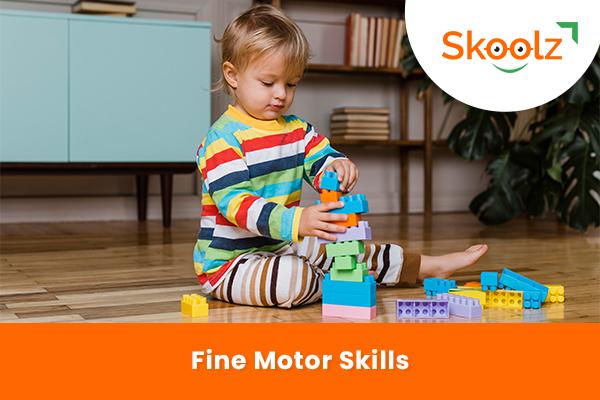
Hand-eye coordination is crucial for the development of fine motor skills. It enables toddlers to perform intricate tasks like stacking blocks, holding and using utensils, manipulating toys, and drawing with precision. Refined hand-eye coordination enhances their ability to control and coordinate the movements of their hands and fingers.
2. Visual Perception:
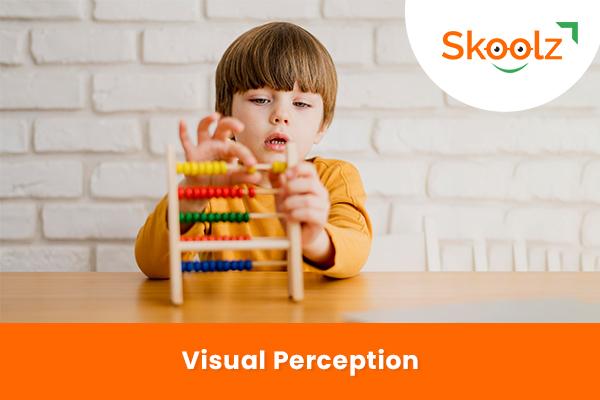
Hand-eye coordination helps toddlers develop visual perception skills, enabling them to interpret and understand the information they see. It allows them to judge distances, make accurate spatial judgments, and track moving objects effectively.
3. Cognitive Development:
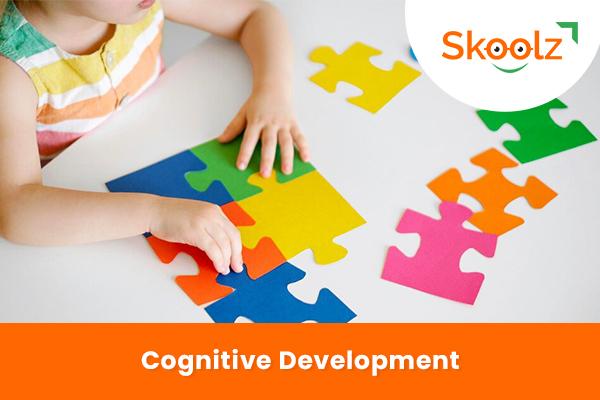
The development of hand-eye coordination supports cognitive growth in toddlers. By coordinating their visual attention and hand movements, toddlers enhance their problem-solving abilities, spatial awareness, and ability to plan and execute tasks.
4. Language and Communication Skills:
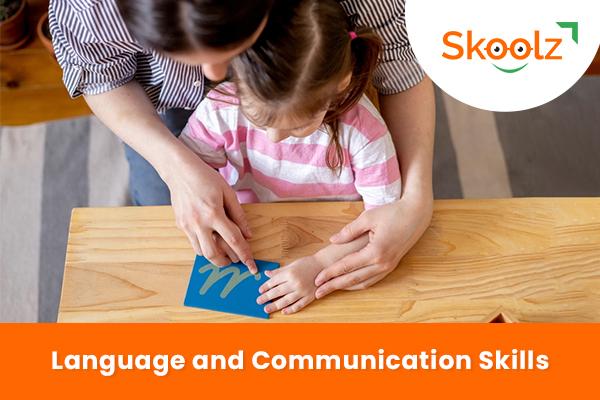
Hand-eye coordination plays a role in developing language and communication skills. It enables toddlers to point to objects, imitate gestures, and use hand movements to enhance their expression and comprehension of language.
5. Self-Help Skills:
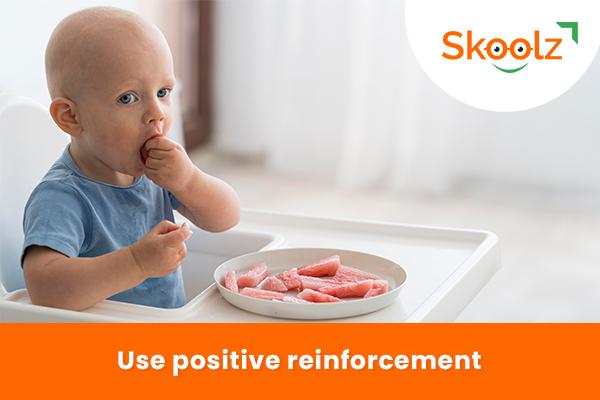
Effective hand-eye coordination is essential for self-help skills. Toddlers rely on it to feed themselves, dress independently, manipulate buttons, zippers, and other fastenings, and engage in personal hygiene tasks like brushing their teeth or combing hair.
Strategies to Foster Hand-Eye Coordination in Toddlers
Here are some practical strategies to support the development of hand-eye coordination in toddlers:
1. Play with Grasping Toys:
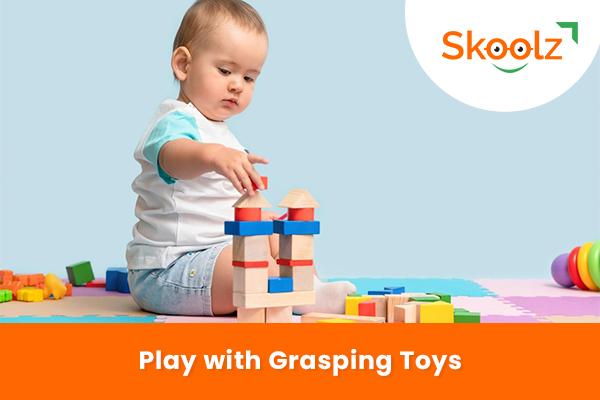
Offer toddlers a variety of grasping toys, such as building blocks, puzzles with chunky pieces, and toys with buttons or levers. Encourage them to manipulate and explore these toys, helping them refine their hand-eye coordination skills.
2. Sensory Play with Objects:
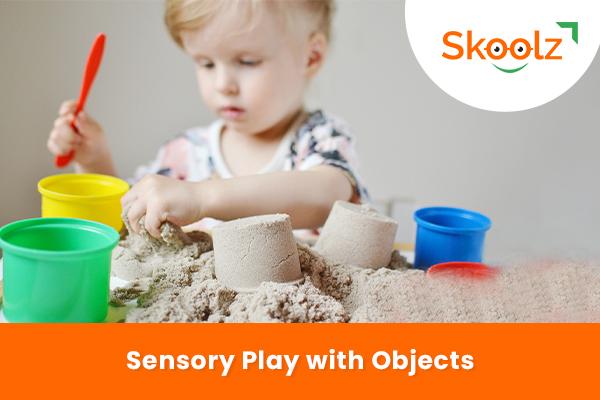
Engage toddlers in sensory activities that involve manipulating objects, such as pouring and scooping rice or water, playing with sand, or exploring textures with their hands. These activities strengthen hand-eye coordination while stimulating their senses.
3. Stacking and Sorting Games:
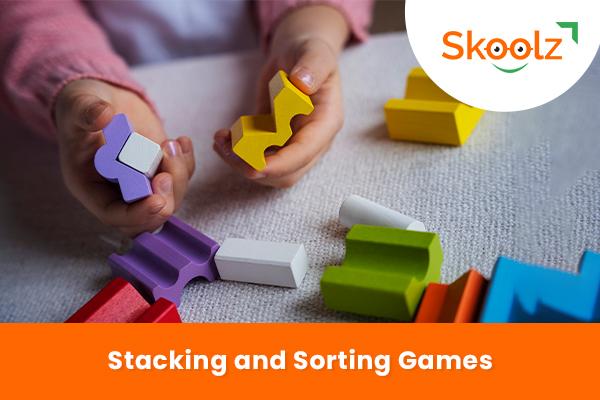
Provide toddlers with stacking toys, sorting shapes, or nesting cups. Encourage them to use their hand-eye coordination to stack objects, fit shapes into corresponding holes, or arrange objects by size or color.
4. Finger Painting and Drawing:
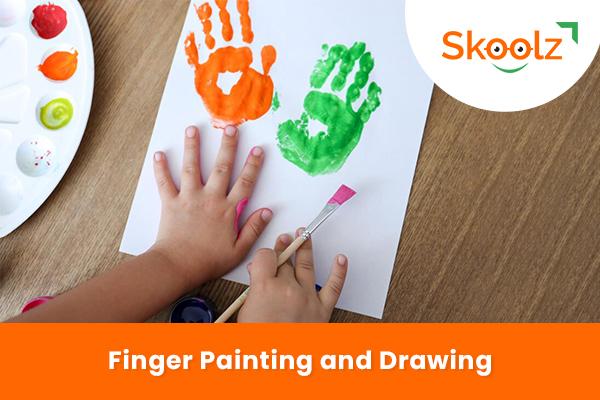
Encourage toddlers to engage in finger painting or drawing activities. These activities allow them to practice controlling hand movements while visually expressing creativity. To explore various textures and mediums, provide them with different materials, such as finger paints, crayons, or chalk.
5. Throwing and Catching Games:
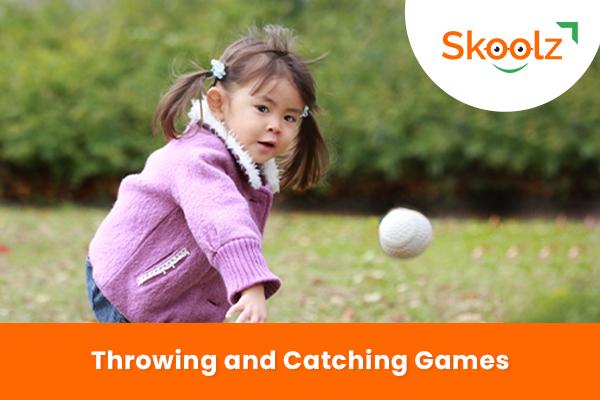
Introduce simple throwing and catching games with soft balls or lightweight objects. Encourage toddlers to track the moving objects with their eyes and coordinate their hand movements to catch or throw accurately. Start with short distances and gradually increase the challenge.
6. Play with Puzzles:
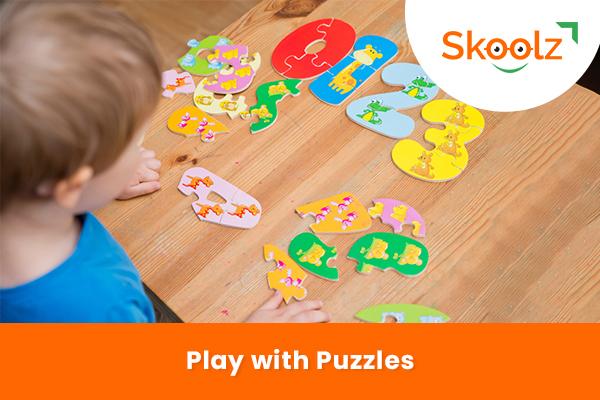
Introduce age-appropriate puzzles with larger pieces and simple designs. Encourage toddlers to manipulate the puzzle pieces, observe visual cues, and coordinate their hands and eyes to complete the puzzles.
7. Play with Building Blocks:
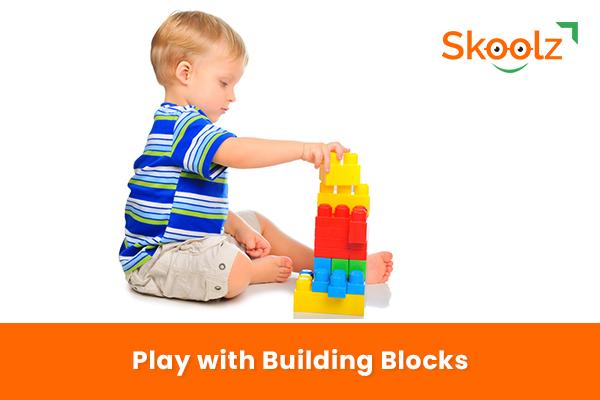
Engage toddlers in building activities with blocks or construction toys. Encourage them to visually plan their structures and use their hand-eye coordination to stack blocks or connect pieces.
Conclusion: Hand-eye coordination is a vital skill for toddlers as they explore, learn, and interact with the world around them. By providing opportunities for play, sensory exploration, and engaging activities, parents and caregivers can nurture and enhance their toddlers' hand-eye coordination abilities. Embrace the joy of witnessing their growth as they develop their fine motor skills, cognitive abilities, and independence through the magic of hand-eye coordination.
FAQs:
Q1: What are some signs that my toddler may have difficulties with hand-eye coordination?
A: Difficulty grasping objects, trouble with fine motor tasks like picking up small objects, struggles with hand-eye tasks such as catching or throwing a ball, and challenges with drawing or coloring within lines may indicate potential coordination difficulties. If you have concerns, consult with a pediatrician or occupational therapist for evaluation and guidance.
Q2: How can I make activities more engaging to promote hand-eye coordination in my toddler?
A: Make activities fun and age-appropriate. Use colorful and textured materials, incorporate music or storytelling, and praise your toddler's efforts. Follow their lead, allowing them to explore at their own pace and offering support as needed.
Q3: What if my toddler loses interest quickly during hand-eye coordination activities?
A: Keep activities short and varied, allowing your toddler to explore different experiences. Follow their cues and switch to new activities if they become disinterested. Remember that toddlers have short attention spans and may need frequent changes to stay engaged.
Q4: Can screen time affect my toddler's hand-eye coordination development?
A: Excessive screen time may limit opportunities for hands-on exploration and active play, which are essential for developing hand-eye coordination. It's important to balance screen time with a variety of real-world, hands-on activities to promote healthy development.
Q5: My toddler seems frustrated when attempting hand-eye coordination tasks. What should I do?
A: Offer encouragement and support while allowing your toddler to work through challenges independently. Break tasks into smaller, manageable steps and reinforce their efforts positively. If frustration persists, seek guidance from a pediatrician or occupational therapist for additional support.
Note: The information provided in this guide and the FAQs is for general informational purposes only and should not be considered as professional advice. Consult with healthcare professionals or specialists for personalized guidance based on your child's specific needs.
 Written by:
Written by:
Bhawana Mohane
Digital Marketer

Developing Hand-Eye Coordination in Toddlers: A World of Discovery and Skills
As toddlers explore the world around them, their ability to coordinate their hands and eyes becomes crucial for various tasks and activities. Hand-eye coordination is the harmonious integration of visual input and hand movements, allowing toddlers to grasp, manipulate, and interact with objects effectively. This essential skill lays the foundation for fine motor development, cognitive abilities, and everyday tasks. In this blog, we will delve into the significance of hand-eye coordination in toddlers, explore its impact on their development, and provide practical strategies to foster its growth during this exciting phase of life.
The Importance of Hand-Eye Coordination in Toddlers:
Hand-eye coordination plays a vital role in a toddler's overall development, influencing several key areas:
1. Fine Motor Skills:

Hand-eye coordination is crucial for the development of fine motor skills. It enables toddlers to perform intricate tasks like stacking blocks, holding and using utensils, manipulating toys, and drawing with precision. Refined hand-eye coordination enhances their ability to control and coordinate the movements of their hands and fingers.
2. Visual Perception:

Hand-eye coordination helps toddlers develop visual perception skills, enabling them to interpret and understand the information they see. It allows them to judge distances, make accurate spatial judgments, and track moving objects effectively.
3. Cognitive Development:

The development of hand-eye coordination supports cognitive growth in toddlers. By coordinating their visual attention and hand movements, toddlers enhance their problem-solving abilities, spatial awareness, and ability to plan and execute tasks.
4. Language and Communication Skills:

Hand-eye coordination plays a role in developing language and communication skills. It enables toddlers to point to objects, imitate gestures, and use hand movements to enhance their expression and comprehension of language.
5. Self-Help Skills:

Effective hand-eye coordination is essential for self-help skills. Toddlers rely on it to feed themselves, dress independently, manipulate buttons, zippers, and other fastenings, and engage in personal hygiene tasks like brushing their teeth or combing hair.
Strategies to Foster Hand-Eye Coordination in Toddlers
Here are some practical strategies to support the development of hand-eye coordination in toddlers:
1. Play with Grasping Toys:

Offer toddlers a variety of grasping toys, such as building blocks, puzzles with chunky pieces, and toys with buttons or levers. Encourage them to manipulate and explore these toys, helping them refine their hand-eye coordination skills.
2. Sensory Play with Objects:

Engage toddlers in sensory activities that involve manipulating objects, such as pouring and scooping rice or water, playing with sand, or exploring textures with their hands. These activities strengthen hand-eye coordination while stimulating their senses.
3. Stacking and Sorting Games:

Provide toddlers with stacking toys, sorting shapes, or nesting cups. Encourage them to use their hand-eye coordination to stack objects, fit shapes into corresponding holes, or arrange objects by size or color.
4. Finger Painting and Drawing:

Encourage toddlers to engage in finger painting or drawing activities. These activities allow them to practice controlling hand movements while visually expressing creativity. To explore various textures and mediums, provide them with different materials, such as finger paints, crayons, or chalk.
5. Throwing and Catching Games:

Introduce simple throwing and catching games with soft balls or lightweight objects. Encourage toddlers to track the moving objects with their eyes and coordinate their hand movements to catch or throw accurately. Start with short distances and gradually increase the challenge.
6. Play with Puzzles:

Introduce age-appropriate puzzles with larger pieces and simple designs. Encourage toddlers to manipulate the puzzle pieces, observe visual cues, and coordinate their hands and eyes to complete the puzzles.
7. Play with Building Blocks:

Engage toddlers in building activities with blocks or construction toys. Encourage them to visually plan their structures and use their hand-eye coordination to stack blocks or connect pieces.
Conclusion: Hand-eye coordination is a vital skill for toddlers as they explore, learn, and interact with the world around them. By providing opportunities for play, sensory exploration, and engaging activities, parents and caregivers can nurture and enhance their toddlers' hand-eye coordination abilities. Embrace the joy of witnessing their growth as they develop their fine motor skills, cognitive abilities, and independence through the magic of hand-eye coordination.
FAQs:
Q1: What are some signs that my toddler may have difficulties with hand-eye coordination?
A: Difficulty grasping objects, trouble with fine motor tasks like picking up small objects, struggles with hand-eye tasks such as catching or throwing a ball, and challenges with drawing or coloring within lines may indicate potential coordination difficulties. If you have concerns, consult with a pediatrician or occupational therapist for evaluation and guidance.
Q2: How can I make activities more engaging to promote hand-eye coordination in my toddler?
A: Make activities fun and age-appropriate. Use colorful and textured materials, incorporate music or storytelling, and praise your toddler's efforts. Follow their lead, allowing them to explore at their own pace and offering support as needed.
Q3: What if my toddler loses interest quickly during hand-eye coordination activities?
A: Keep activities short and varied, allowing your toddler to explore different experiences. Follow their cues and switch to new activities if they become disinterested. Remember that toddlers have short attention spans and may need frequent changes to stay engaged.
Q4: Can screen time affect my toddler's hand-eye coordination development?
A: Excessive screen time may limit opportunities for hands-on exploration and active play, which are essential for developing hand-eye coordination. It's important to balance screen time with a variety of real-world, hands-on activities to promote healthy development.
Q5: My toddler seems frustrated when attempting hand-eye coordination tasks. What should I do?
A: Offer encouragement and support while allowing your toddler to work through challenges independently. Break tasks into smaller, manageable steps and reinforce their efforts positively. If frustration persists, seek guidance from a pediatrician or occupational therapist for additional support.
Note: The information provided in this guide and the FAQs is for general informational purposes only and should not be considered as professional advice. Consult with healthcare professionals or specialists for personalized guidance based on your child's specific needs.
 Written by:
Written by:
Bhawana Mohane
Digital Marketer




